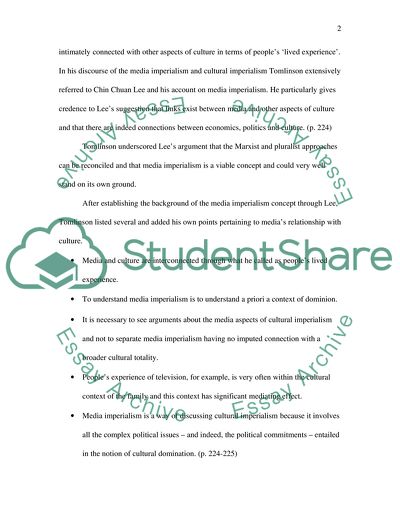Cite this document
(Cultural Imperialism Case Study Example | Topics and Well Written Essays - 2000 words, n.d.)
Cultural Imperialism Case Study Example | Topics and Well Written Essays - 2000 words. Retrieved from https://studentshare.org/culture/1707853-outline-and-critically-review-john-tomlinsons-four-discourses-of
Cultural Imperialism Case Study Example | Topics and Well Written Essays - 2000 words. Retrieved from https://studentshare.org/culture/1707853-outline-and-critically-review-john-tomlinsons-four-discourses-of
(Cultural Imperialism Case Study Example | Topics and Well Written Essays - 2000 Words)
Cultural Imperialism Case Study Example | Topics and Well Written Essays - 2000 Words. https://studentshare.org/culture/1707853-outline-and-critically-review-john-tomlinsons-four-discourses-of.
Cultural Imperialism Case Study Example | Topics and Well Written Essays - 2000 Words. https://studentshare.org/culture/1707853-outline-and-critically-review-john-tomlinsons-four-discourses-of.
“Cultural Imperialism Case Study Example | Topics and Well Written Essays - 2000 Words”. https://studentshare.org/culture/1707853-outline-and-critically-review-john-tomlinsons-four-discourses-of.


